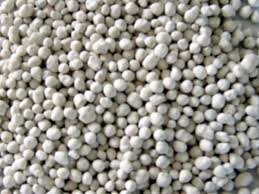
8 сар . 17, 2024 07:13 Back to list
Urea-Enhanced NPK Fertilizers from Leading Manufacturers for Optimal Crop Growth
Urea-Based NPK Fertilizer An Essential Perspective on Manufacturing and Usage
Urea-based NPK fertilizers have become increasingly popular in modern agriculture, providing farmers with an efficient and cost-effective solution for enhancing crop yields. The concept of NPK refers to the three primary nutrients essential for plant growth nitrogen (N), phosphorus (P), and potassium (K). Urea, a nitrogen-rich compound, serves as a fundamental building block in the formulation of these fertilizers, making them vital for sustainable agricultural practices.
Understanding Urea and Its Role in NPK Formulations
Urea is a nitrogenous organic compound that contains approximately 46% nitrogen by weight, making it one of the most concentrated sources of nitrogen available in the market. This high nitrogen content makes urea an attractive option for manufacturers looking to produce NPK fertilizers that effectively supply crops with the nutrients they require.
In NPK fertilizers, urea is often complemented by potassium and phosphorus sources, enabling a balanced nutrient profile. The combination of these nutrients is crucial for various physiological processes in plants, such as photosynthesis, energy transfer, and synthesis of proteins. A well-balanced NPK fertilizer containing urea can significantly enhance plant growth, improve soil fertility, and increase agricultural productivity.
The Manufacturing Process
The manufacturing of urea-based NPK fertilizers involves several key steps, starting with the synthesis of urea itself
. Urea is produced through the reaction of ammonia and carbon dioxide, resulting in a white, crystalline substance that is then processed further to create various fertilizer formulations.urea based npk fertilizer manufacturer

After producing urea, manufacturers blend it with potassium and phosphorus sources, such as potassium chloride and monoammonium phosphate. This mixing process ensures that the nutrients are evenly distributed throughout the fertilizer. Advanced production techniques, including granulation and coating, are often employed to enhance the physical properties of the fertilizer, making it easier to handle, store, and apply.
Quality control is paramount in the manufacturing process of urea-based NPK fertilizers. Manufacturers adhere to strict industry standards to ensure that the nutrient content accurately reflects the product specifications. This ensures that farmers receive reliable fertilizers that will provide consistent results.
Environmental Considerations
While urea-based NPK fertilizers offer substantial benefits for crop production, their usage must be managed carefully to mitigate potential environmental impacts. Excessive application of nitrogen can lead to nutrient leaching and water pollution, resulting in adverse ecological effects such as algal blooms in freshwater systems. Therefore, it's crucial for farmers to use these fertilizers responsibly, following recommended application rates and timings.
Moreover, advances in technology and farming practices, such as precision agriculture, can help optimize the use of urea-based NPK fertilizers. By utilizing soil testing and plant monitoring techniques, farmers can tailor their fertilizer applications to meet the specific nutrient needs of their crops, enhancing efficiency and reducing environmental risks.
Conclusion
Urea-based NPK fertilizers play a critical role in modern agriculture, providing necessary nutrients to support healthy crop growth and high yields. As manufacturers continue to refine their production processes and address environmental concerns, the importance of these fertilizers in promoting sustainable agriculture cannot be overstated. Responsible usage, guided by best agricultural practices, will ensure that these essential products contribute positively to global food security while minimizing their ecological footprint.
-
Premium 8 12 16 Fertilizer – High-Efficiency Compound & Granular NPK Supplier
NewsJun.10,2025
-
High Quality Agricultural Grade NPK Fertilizer Manufacturer & Supplier Reliable Factory Price
NewsJun.10,2025
-
Organic Fertilizer for Corn Boost Yield Sustainably
NewsJun.10,2025
-
Organic Fertilizer for New Plants Natural Growth Boost & Eco Nutrients
NewsJun.10,2025
-
Optimized Hydroponic NPK Fertilizer – Fast Growth & Nutrients
NewsJun.09,2025
-
Top-Rated NPK Fertilizer for Fruit Trees - Boost Growth & Yield
NewsJun.09,2025
